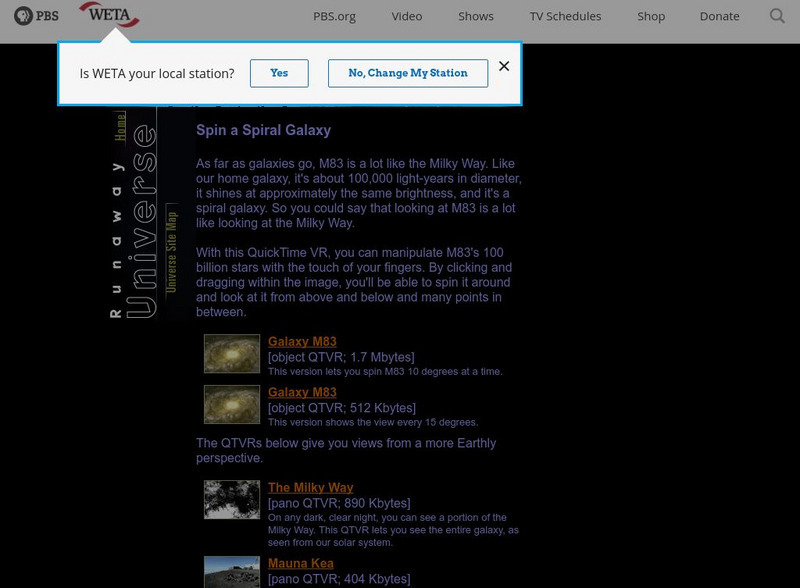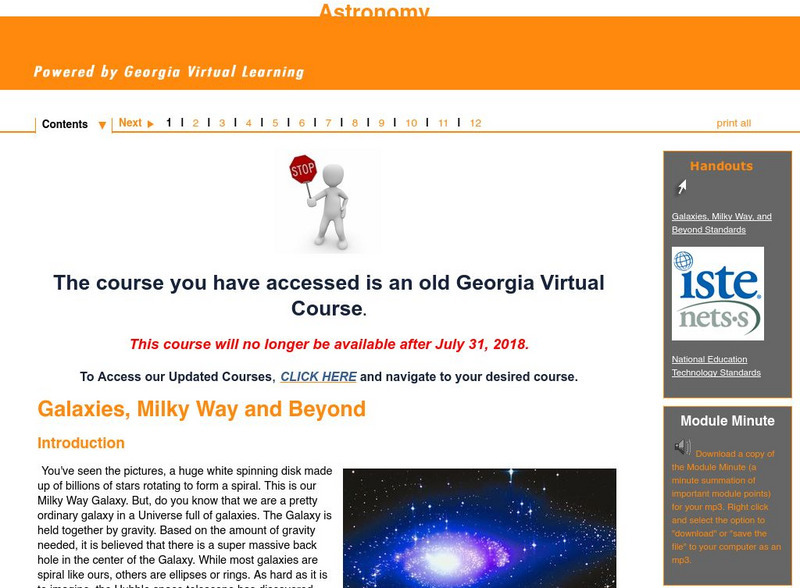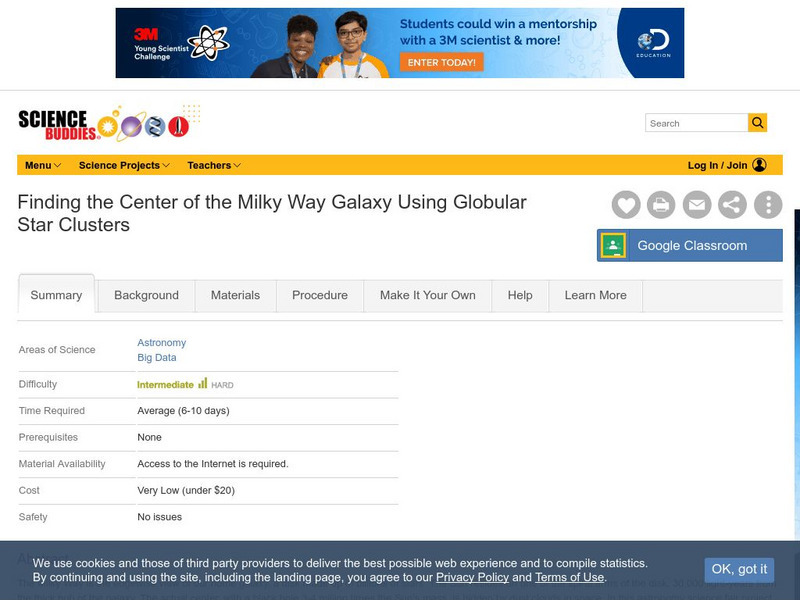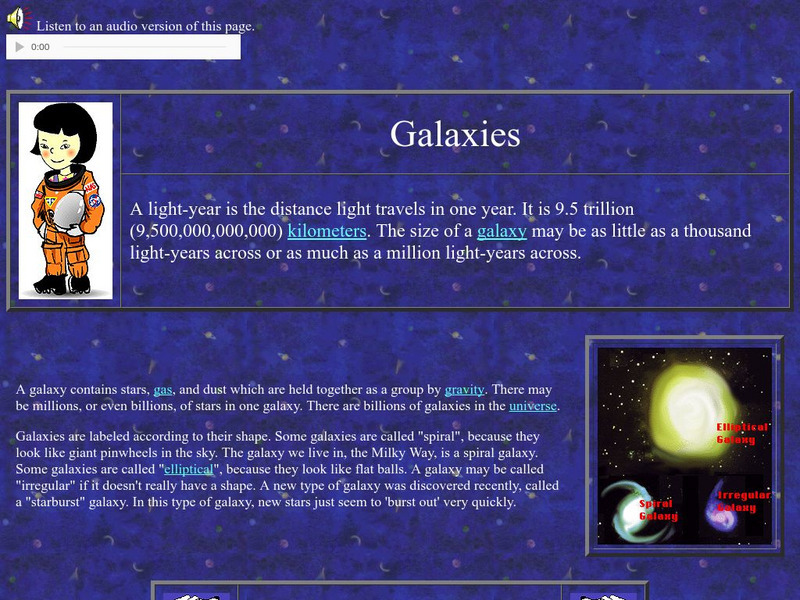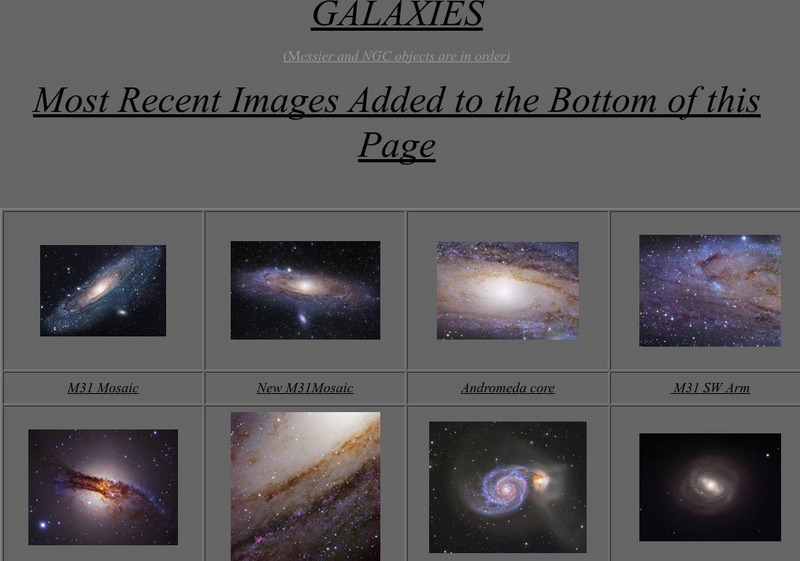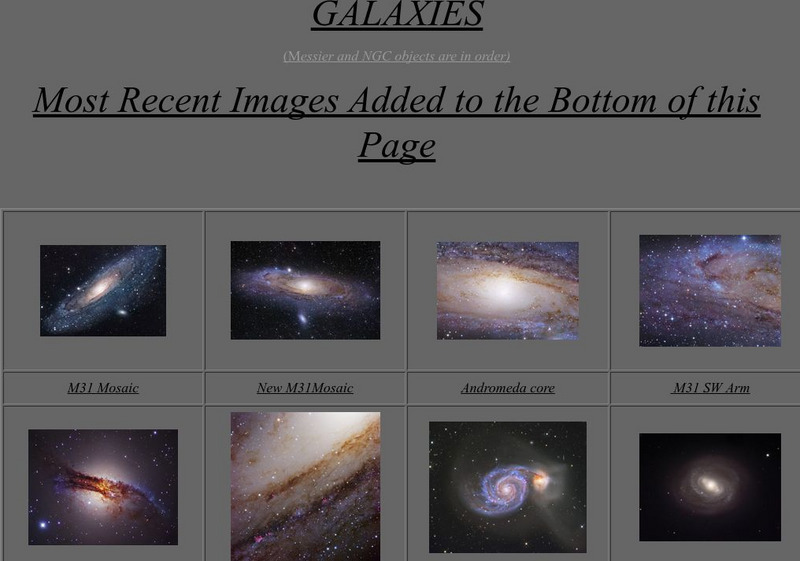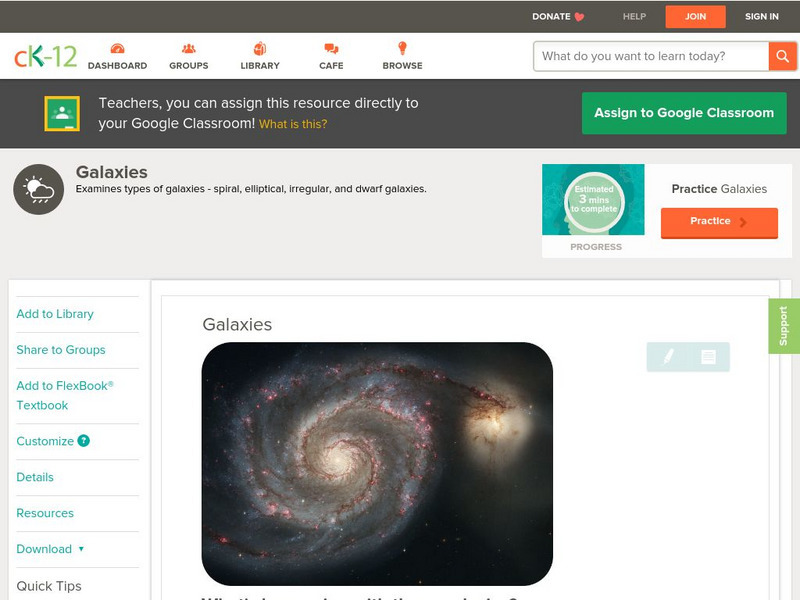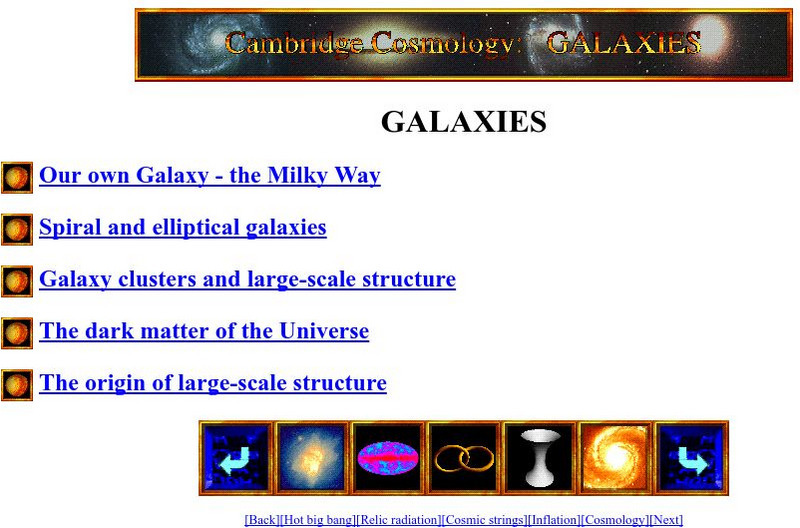Curated OER
Pictures from Hubble Space Telescope
Students observe pictures taken by NASA's Hubble Space Telescope. From a given website, students observe images of the Einstein Cross, Black Eye Galaxy, Hoag's Object, merging and interacting galaxies and more. This lesson plan gives a...
Curated OER
Discover!
Students design a double spiral mobile to illustrate the different stages in the life of a small-mass star like our Sun, and in the life of a large-mass star. They complete both spirals and create a small hole at the top. Next they use a...
Curated OER
Solar System Multiple Choice Activity
In this solar system worksheet, students complete a ten question multiple choice page pertaining to the solar system. Prior knowledge is assumed.
Curated OER
Solar System Vocabulary 2
For this solar system worksheet, students write vocabulary words describing the solar system next to their definitions. Students write 12 vocabulary words.
Curated OER
The Next Dimension
Students explore the three dimensional Cartesian coordinate system and discuss how it is important for structural engineers in order to be able to describe locations in space to fellow engineers. They participate in a hands-on activity...
Curated OER
Our Solar System-- Fact File
In this space science instructional activity, students read facts about the solar system. Students look at the diagram showing the position of the planets. Pluto is included as a planet here.
Other
University of Leicester: Spiral Galaxies
Provides a general overview of spiral galaxies, including descriptions of the different classes of spiral galaxy.
PBS
Pbs Nova Online: Spin a Spiral Galaxy
PBS site provides various views of spiral galaxies. (Quick Time required) With this technology, you can manipulate the image to spin it around and look at it from various angles.
Georgia Department of Education
Ga Virtual Learning: Galaxies, the Milky Way and Beyond
In this interactive tutorial students will explore galaxies. Learn what the Milky Way Galaxy is like, how various galaxies are grouped into clusters and superclusters and why those particular galaxies clump together.
NASA
Nasa: Spiral Galaxy
This Spiral Galaxy image is part of a series of photographs taken from the Spitzer Space Telescope. The picture is accompanied by a textual overview of a spiral galaxy with specific attention given to the details of the picture.
PBS
Pbs Learning Media: Spin a Spiral Galaxy
This interactive activity from NOVA Online lets you spin a spiral galaxy, including our own Milky Way. It demonstrates that what you can learn from visible light observations of a galaxy is largely determined by the angle from which you...
Science Buddies
Science Buddies: Find Center of Milky Way Galaxy Using Globular Star Clusters
The Milky Way is the edgewise view of our home galaxy, a disk made up of billions of stars. The Sun resides on one of the spiral arms of the disk, 30,000 light-years from the thick hub of the galaxy. The actual center, with a black hole...
Australian Broadcasting Corporation
Australian Broadcasting Corporation: News in Science: Spiral Galaxy as Never Seen Before
From ABC News in Science, this article covers information related to a photo of the largest spiral galaxy ever captured in a picture. The photo is taken of the Pinwheel galaxy.
NASA
Nasa Star Child: Galaxies (Level 1)
This site provides an introduction to galaxies for the younger student, that is divided into 2 levels of understanding. Find out what type of galaxy looks like a giant pinwheel. Audio content included. Good glossary, and a printable...
NASA
Nasa Star Child: Galaxies
This resource has two levels: one for younger viewers and one for older viewers. It surveys the basic galaxy types and provides details.
Other
Astrophotography: Galaxies
Numerous high quality images of galaxies can be found in this site. Names, exposure times, and various magnifications are provided.
Other
Astrophotography: Galaxies
Numerous high quality images of galaxies can be found in this site. Names, exposure times, and various magnifications are provided.
CK-12 Foundation
Ck 12: Earth Science: Galaxies
[Free Registration/Login may be required to access all resource tools.] Examines galaxies and how they are divided into three types according to shape.
NASA
Nasa Space Place: What Is a Galaxy?
This resource explores the different types of galaxies through text and images.
Other
Sky Server: Galaxies
SkyServer explains and presents images of spiral galaxies, elliptical galaxies, irregular galaxies, galaxy clusters, galaxy collisions and the like.
California Institute of Technology
Spitzer Space Telescope: Our Galaxy's 'Twin'
This image, titled "Morphology of Our Galaxy's 'Twin'" features three individual pictures of a nearby spiral galaxy that closely resembles our own. The text under the image details various specifics about the picture.
Space Telescope Science Institute
Galaxy Hunter: A Cosmic Photo Safari
Travel the universe and learn about galaxies. Investigate Hubble Deep Field observations to learn more.
Other
University of Cambridge Cosmology: Galaxies
This site from the University of Cambridge allows you to view information on spiral, elliptical, and Milky Way galaxies, as well as galaxy clusters. Provides basic facts about each one.









